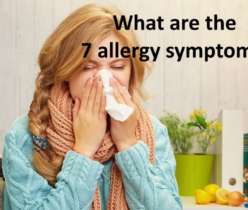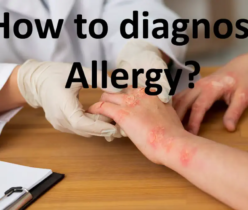Allergies are a common condition where the body’s immune system reacts to substances that are generally harmless to most people, such as pollen, pet dander, or certain foods. When someone has allergies, their immune system identifies these substances, known as allergens, as threats and overreacts to them. This can lead to a range of symptoms, from mild discomfort to severe reactions.
Key Takeaways
- Allergies occur when the immune system overreacts to harmless substances called allergens.
- Common allergens include pollen, pet dander, certain foods, and insect stings.
- Symptoms of allergies can range from sneezing and itching to severe reactions like anaphylaxis.
- Both genetic and environmental factors can contribute to the development of allergies.
- Effective management and treatment options are available, including medications, allergy shots, and lifestyle modifications.
Understanding Allergies
Definition of Allergies
They occur when your immune system overreacts to a substance known as an allergen. These allergens are typically harmless to most people, but for those with allergies, the immune system treats them as threats. Allergies affect people of all ages, races, genders, and socioeconomic statuses.
Common Allergens
Common allergens include:
- Pollen
- Pet dander
- Dust mites
- Mold
- Certain foods (e.g., nuts, shellfish)
- Insect stings
- Medications
How the Immune System Reacts
When exposed to an allergen, the immune system produces antibodies called Immunoglobulin E (IgE). These antibodies trigger the release of chemicals like histamine, leading to symptoms such as sneezing, itching, and swelling. For some, repeated exposure can increase the severity of the reaction, potentially leading to life-threatening conditions like anaphylaxis.
Understanding allergies is crucial for identifying the correct problem, whether it’s an allergy or an illness.
Symptoms of Allergies

Common Symptoms
They can manifest through a variety of symptoms, ranging from mild to severe. Common symptoms include:
- Itchy, watery eyes
- Sneezing
- Runny or stuffy nose
- Itchy nose or roof of mouth
- Rashes or hives
- Stomach cramps
- Vomiting
- Diarrhea
- Bloating
- Swelling
Severe Allergic Reactions
In some cases, allergic reactions can be life-threatening. Anaphylaxis is a severe reaction that requires immediate medical attention. Symptoms of anaphylaxis include:
- Difficulty breathing
- Swelling of the mouth or throat
- Rapid or weak pulse
- Loss of consciousness
Seasonal vs. Perennial Allergies
Allergies can be classified based on their occurrence. Seasonal allergies typically occur during specific times of the year, such as spring or fall, and are often triggered by pollen. Perennial allergies, on the other hand, can occur year-round and are usually triggered by indoor allergens like dust mites or pet dander.
Understanding the symptoms of allergies is crucial for effective management and treatment.
Causes and Risk Factors

Genetic Factors
Genetics play a significant role in the development of allergies. If you have a family history of asthma, hay fever, or eczema, you are more likely to develop allergies. Having a parent with allergies increases your risk significantly.
Environmental Triggers
Environmental factors can also contribute to the onset of allergies. Common triggers include:
- Airborne allergens like pollen, animal dander, dust mites, and mold
- Certain foods such as peanuts, tree nuts, wheat, soy, fish, shellfish, eggs, and milk
- Insect stings from bees or wasps
- Medications, particularly penicillin-based antibiotics
- Latex or other substances that cause skin reactions
Lifestyle Influences
Your lifestyle can impact your likelihood of developing allergies. Factors such as smoking, exposure to pollution, and even stress can exacerbate allergic reactions. Additionally, having other conditions like asthma or Hypertension can increase your susceptibility to allergies.
Understanding the causes and risk factors of allergies is crucial for effective management and prevention.
Diagnosis and Testing

Allergy Tests
The health care provider will perform a physical exam and ask questions, such as when the allergy occurs. Allergy testing may be needed to find out whether the symptoms are an actual allergy or are caused by other problems. For example, eating contaminated food (food poisoning) may cause symptoms similar to food allergies. Some medicines (such as aspirin and ampicillin) can produce non-allergic reactions, including rashes. A runny nose or cough may actually be due to an infection.
Interpreting Results
In some cases, the doctor may tell you to avoid certain items to see if you get better, or to use suspected items to see if you feel worse. This is called “use or elimination testing.” This is often used to check for food or medicine allergies.
When to See a Specialist
Severe allergic reactions (anaphylaxis) need to be treated with a medicine called epinephrine. It can be life-saving when given right away. If you use epinephrine, call 911 or the local emergency number and go straight to the hospital.
Management and Treatment
Medications
Medications are often the first line of defense in managing allergies. Antihistamines, decongestants, and corticosteroids are commonly used to alleviate symptoms. These medications can be taken orally, nasally, or topically, depending on the type and severity of the allergy.
Allergy Shots
Allergy shots, also known as immunotherapy, involve regular injections of allergens to build up tolerance over time. This treatment is particularly effective for seasonal allergies and can provide long-term relief. The process requires a significant time commitment but can drastically reduce symptoms.
Lifestyle Modifications
Lifestyle modifications are crucial for managing allergies effectively. This includes avoiding known allergens, using air purifiers, and maintaining a clean living environment. Simple changes can make a big difference in improving your quality of life.
Your specialist will give you an allergy management plan that will explain how to manage your allergy.
Summary
Prevention Strategies
 The best way to prevent allergies is to avoid allergens. This might sound simple, but it can be challenging depending on the type of allergy you have. For instance, if you have animal allergies, avoid petting, hugging, or kissing animals. Don’t allow them in your bedroom or on your furniture. Regularly vacuuming rugs, carpets, and other surfaces helps remove dust, animal dander, pollen, and other allergens.
The best way to prevent allergies is to avoid allergens. This might sound simple, but it can be challenging depending on the type of allergy you have. For instance, if you have animal allergies, avoid petting, hugging, or kissing animals. Don’t allow them in your bedroom or on your furniture. Regularly vacuuming rugs, carpets, and other surfaces helps remove dust, animal dander, pollen, and other allergens.
Creating an allergy-friendly home environment is crucial. Here are some tips:
- Use air purifiers to reduce airborne allergens.
- Keep windows closed during high pollen seasons.
- Regularly clean and replace air filters in your home.
- Opt for hardwood floors instead of carpets to minimize dust accumulation.
Your diet can also play a role in managing allergies. Some foods might trigger allergic reactions, so it’s essential to identify and avoid them. Consulting with a nutritionist can provide personalized dietary advice. Additionally, incorporating anti-inflammatory foods like fruits, vegetables, and omega-3 fatty acids can help reduce allergy symptoms.
Master your allergies with top allergy prevention tips and care from Sophia Rahman, a leading primary care physician in Plano. Learn how to live well!
Living with Allergies
Living with allergies can be challenging, but with the right strategies, you can lead a fulfilling life. Don’t let allergies interfere with your day-to-day activities at home, work, or school. Here are some tips to help you manage:
- Keep medicine with you at all times to treat an allergic reaction.
- Take steps to avoid your allergens.
- Use air conditioners and change air filters regularly to reduce exposure to allergens.
You’re not alone in this journey. Your healthcare provider can recommend resources, support groups, and specialists to help you. The AAFA community is dedicated to improving the quality of life for people with asthma and allergic diseases. You can connect with others who understand what it is like to live with asthma and allergies.
With caution and proper management, you can live a normal life despite having allergies. Symptoms can range from mild to severe, but with the right approach, you can keep them under control. Online Fitness Classes can also be a great way to stay active without exposing yourself to outdoor allergens.
Living with allergies can be challenging, but with the right strategies and support, you can lead a fulfilling life.
Conclusion
Allergies are a widespread and chronic condition that affects millions of people worldwide. They occur when the immune system overreacts to typically harmless substances, known as allergens, leading to a range of symptoms from mild discomfort to severe reactions. Understanding the causes, symptoms, and management of allergies is crucial for improving the quality of life for those affected. With ongoing research and advancements in treatment, individuals with allergies can find effective ways to manage their condition and lead healthier lives. By staying informed and proactive, it is possible to minimize the impact of allergies on daily living.
Frequently Asked Questions
What are allergies?
Allergies occur when your immune system overreacts to a foreign substance called an allergen. Common allergens include pollen, pet dander, and certain foods.
What are the common symptoms of allergies?
Common symptoms include sneezing, watery eyes, runny or stuffy nose, itching, and rashes. Severe reactions can include difficulty breathing and anaphylaxis.
How are allergies diagnosed?
Allergies are diagnosed through various tests such as skin prick tests, blood tests, and elimination diets. A specialist may be consulted for accurate diagnosis and treatment.
Can allergies be cured?
There is no cure for allergies, but they can be managed with medications, allergy shots, and lifestyle modifications to reduce exposure to allergens.
What should I do if I have a severe allergic reaction?
Seek immediate medical attention if you experience symptoms of a severe allergic reaction, such as difficulty breathing, swelling of the face or throat, or anaphylaxis.
Are allergies hereditary?
Yes, It can be hereditary. If one or both parents have allergies, there is a higher chance that their children will also have allergies.




